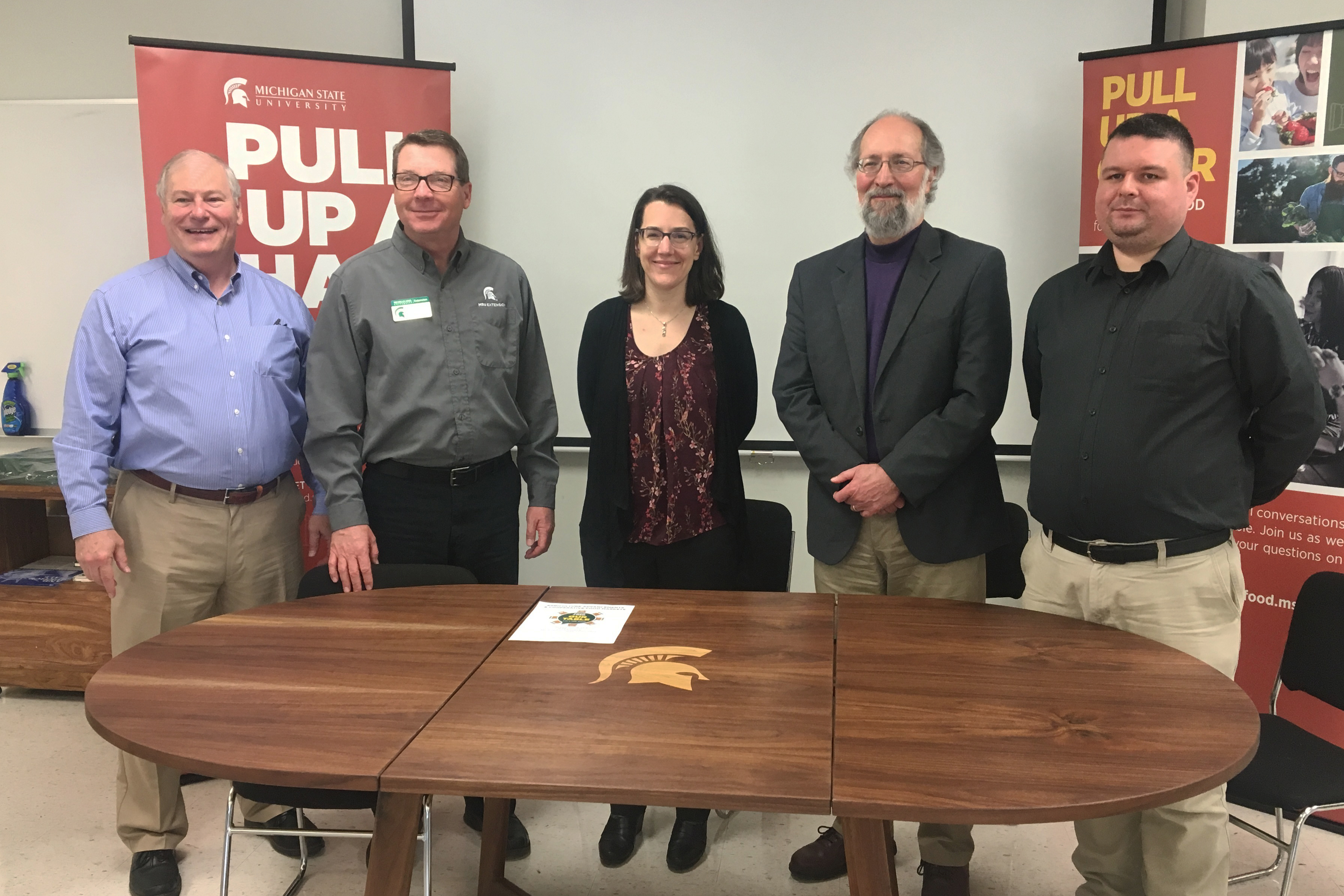Agricultural cooperatives, or co-ops, are networks of growers, farmers, producers and distributors that share resources and profits.
Learning more about the work of co-ops was the goal of a recent Our Table at the Michigan State University (MSU) Extension Lapeer County office.
Our Table discussions are a large part of Food@MSU – an MSU AgBioResearch initiative aimed at raising awareness about food, and its impact on our health and the environment. Our Table brings agriculture industry professionals, and MSU faculty, researchers and Extension educators together to discuss topics important to them, network and gain new perspectives.
“A lot of people are concerned about their food, where it’s coming from,” said Doug Buhler, director of MSU AgBioResearch. “We’re trying to change our approach to listen more and help people sort through all the conflicting information and make sense of the world of food.”

Rod Kelsay, executive director of the Mid America Cooperative Council (MACC) saw an opportunity to partner with Food@MSU after listening to a presentation on the initiative during a Michigan Agri-Business Association breakfast in April.
“I thought what a wonderful opportunity for us to come together and jointly share a meeting,” said Kelsay. “We thought it was important to explain what’s unique about co-ops and also how engaged they are in the food product industry here in Michigan.”
At the Lapeer event, Buhler and Kelsay, along with Jean-Francois Parent (Conseil de la cooperation de l’Ontario [CCO] and the Association of Cooperative Educators [ACE])and MSU Extension Educator Phil Kaatz, discussed agricultural co-ops, science communication and other topics with an audience that included individuals from the MSU community, co-op and commodity organization members directors; and representatives from Lapeer County Farm Bureau, the Food Bank Council of Michigan and GreenStone Farm Credit Services. GreenStone provided lunch following the conversation.
“A lot of people are concerned about their food, where it’s coming from. We’re trying to change our approach to listen more and help people sort through all the conflicting information and make sense of the world of food.” Doug Buhler, director, MSU AgBioResearch
Parent, who traveled to Lapeer from Ottawa, Ontario, Canada — a seven-hour drive — was impressed.
“It’s my first time in Michigan, and I had a warm welcome. It was amazing,” he said. “This event was really interesting for us because it’s something that we aspire to do —being more involved in community events and making a strong voice for the agricultural cooperative sectors in all areas in North America.”
Kelsay sees the value of discussions, like Our Table events, in offering an opportunity to better understand the changing nature of the agricultural industry.
“As our industries grow and become very sophisticated, it’s challenging for us to get that science and that information communicated out not only to those in agriculture, but also to consumers of agriculture,” said Kelsay.
“The conversation is critically important because food is everything, food is life,” said Buhler. “We’re closely involved in food, so we have to respond to people’s concerns and needs.”
Kaatz views conversation as a potential springboard for action.
“I think co-ops could be an opportunity for people,” he said. “Communication will be critical, so having someone that’s the champion, someone that has the voice and vision to start something and really get it done — that’s what it takes to really make a difference at the local level.”
Buhler is optimistic about future Our Table discussions.
“I learned a lot, and hopefully the attendees did, too,” he said. “I’m hoping that we can continue to move these conversations to new venues and hear more from our stakeholders and community members.”


 Print
Print Email
Email




